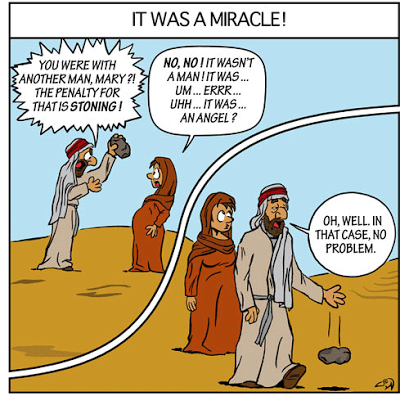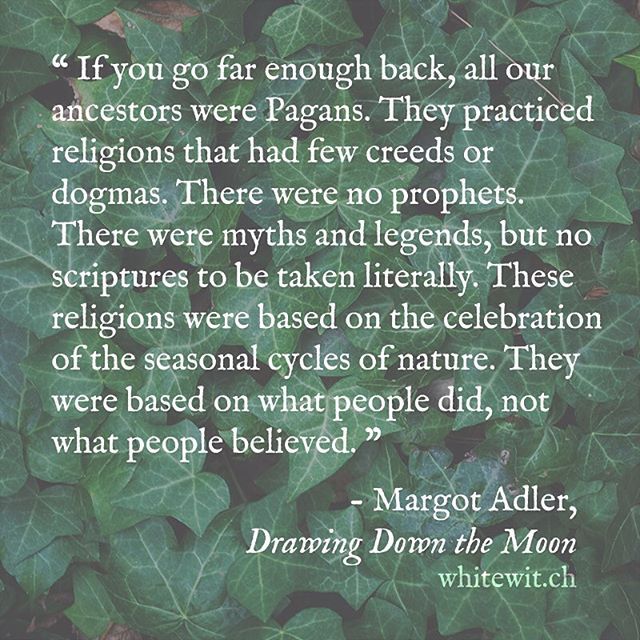
Happy Thor’s Day
Discussion:
What I am about to do here is give at sample or teaser of what I am doing for my non-fiction book. What I am doing is taking my expertise gained from a biblical studies degree, a theological studies degree and twenty years experience of being a pastor and doing a class I did many times – Life of Christ. I am however this time doing it from a skeptics point of view. I am doing it as a non-believer and a critic of Christianity and The Bible.
Today I am going to give a brief synopsis about why I think the virgin birth story is a tall tale concocted by many people who had personal and political reasons to do so. The theory I am running with here is my own which is that there was a man named Jesus of Nazareth and that he did indeed have disciples. That those disciples watched Jesus as he fought the religious establishment. That establishment then did perhaps have him crucified by the Romans because they came to hate him and the threat he posed to their political and religious power.
This is where those disciples create mythology surrounding the man known as Jesus of Nazareth. They knew the Messianic prophecies and began to retroactively go back to his life and spin things to fulfill them. One of those things involved the fact that there was a prophecy where the Messiah had to be born of a virgin.
Therefore the Lord Himself will give you a sign: Behold, a virgin will be with child and bear a son, and she will call His name Immanuel. – Isaiah 7:14
One of the things that may have very well have been true about Jesus is that his origin may have had a little scandal attached to it. That is there was a question as to who his father was or that it was clear he was conceived out of wedlock. As a political scientist, I can see how scandal can be turned to opportunity if it is spun right. So, no Jesus wasn’t the product of an illicit affair or the fact that Joseph and Mary had sex before the wedding day, let’s write it this way to turn him into the Messiah.
Now in the sixth month, the angel Gabriel was sent from God to a city in Galilee called Nazareth, to a virgin engaged to a man whose name was Joseph, of the descendants of David; and the virgin’s name was Mary. And coming in, he said to her, “Greetings, favored one! The Lord is with you.” But she was very perplexed at this statement and kept pondering what kind of salutation this was. The angel said to her, “Do not be afraid, Mary; for you have found favor with God. “And behold, you will conceive in your womb and bear a son, and you shall name Him Jesus. “He will be great and will be called the Son of the Most High; and the Lord God will give Him the throne of His father David; and He will reign over the house of Jacob forever, and His kingdom will have no end.” Mary said to the angel, “How can this be, since I am a virgin?” The angel answered and said to her, “The Holy Spirit will come upon you, and the power of the Most High will overshadow you; and for that reason the holy Child shall be called the Son of God. “And behold, even your relative Elizabeth has also conceived a son in her old age; and she who was called barren is now in her sixth month. “For nothing will be impossible with God.” And Mary said, “Behold, the bondslave of the Lord; may it be done to me according to your word.” And the angel departed from her. Luke 1:26-38 – NASB
Suddenly the scandal becomes an opportunity to tell the story in a different way and Jesus fulfills the prophecy of being born of a virgin. So what is the actual evidence?
Time to Look Through the Eye:
Faith:
In order to believe in the virgin birth, you have to believe that God can make a woman pregnant which is not a stretch if you accept an omnipotent god. That Joseph was not involved and that he suddenly became cool with the fact that another man has sex with his bride to be and knocked her up. He has to buy the story himself.
Mostly though you have to believe that Mary herself is not lying about the angel. Because the only witness of that event is Mary herself. Understand that even if I take the account as true, the only witness even in the gospels of the event is Mary and the only gospel that records it is Luke. Luke is probably the last synoptic gospel to write. One could theorize that Luke is reacting then to the fact that Mark says nothing about a virgin birth and Matthew only deals with Joseph’s reaction and no one has addressed Isaiah’s prophecy to that point. If you believe in the virgin birth, you simply taking the word of one witness – Mary. A girl of fifteen who finds herself pregnant in a culture that stones women who commit adultery or at the best puts away women privately to live out their days in silence. Which is more likely at this point – God impregnated her or that she came up with a story to cover her pregnancy out of fear of reprisal? Or she made it up later to vindicate herself after the fact when people are starting to believe her son is the Messiah.
Religion:
Let’s understand something. the virgin birth in the Bible does not stand alone as the only one. Religions around the world have tons of virgin birth stories and Mary was not unaware of them. This is something that is well known and well published. Just look it up for yourself.
The thing is though for Christianity a lot of theology regarding sin and the biblical god is wrapped up in this story being true; so of course, they defend it regardless of how common such a story is in mythology around the world and how little testimony there is to support the actual story.
But understand that even under the Bible’s own standard of establishing every fact the virgin birth story fails. It only has one witness Mary herself and she certainly has plenty of cultural and personal motivation to make it up. Luke is the only direct record of it but it is still her story alone, he just records it. This fails the two or three witnesses required even by Biblical Standards, particularly the Law of Moses.
Matthew records Joseph’s response but even his response might have had a personal motivation if he either loved Mary or he was the cause of her pregnancy. How he reacted really has only one witness – Joseph himself. He may have simply been a man who took responsibility for his actions and we are assuming he was even around for Matthew to interview as he might have been dead. It is easy to see how Matthew who was writing with the goal of persuading Jews to become Christians might make up Joseph’s story based on stories of others. But that makes is second-hand hearsay, not reliable evidence.
Theology:
This story absolutely is essential for doctrines such as original sin and the incarnation of Christ. For the early Christians, they needed a story that fulfilled some of the prophecies so going back a retroactively recounting things with their own spin on it became essential for the accusation that the Jewish leaders had killed the Messiah.
The motivation for this is that Jesus may very well have been a man who successfully created a movement of reform and the Jewish leaders, by killing him, had created a martyr. It is not hard to see how the disciples, motivated by a desire for the resurrection to be true and to create Jesus as the Messiah, would stretch the truth and follow rumors and ‘urban legends’ of Jesus of Nazareth to do so. For later Christians, these become the basis for theology that allows Jesus to be the answer to the sin question and how Jesus was both God and Man.
Spirituality:
While a great many Christians, particularly women, draw a lot of spiritual strength from Mary’s Story, I look at it more as identification with a character caught in a bad situation that has a great story to get herself out of it and go from being a immoral unwed mother, to the mother of the Messiah. I can see where a lot of women would love that idea and emotionally and spiritually resonate with it. Even those who might think it is not true fully understand given Mary’s Culture why she would do it. In the movie Saved! – the character Mary remarks in one scene how she could understand, being pregnant herself in the movie, why a girl would make up such a story.
Conclusion:
My thoughts are this, I think Jesus of Nazareth was a real person but I think after thirty years before the first writing on his life a lot of mythology and what we would term ‘urban legend’ became built around him that also got into the story. One of the examples is the virgin birth story which appears late in the accounts like it was a reaction to criticism of Jewish leaders that the prophecy in Isaiah is not fulfilled by Jesus of Nazareth. So Matthew records the story of Joseph with his reaction to her being pregnant and later on a little bit after that Luke does the same from Mary’s point of view. Except this does not even meet the Bible’s own criteria of ‘two or three witnesses” as each account is only one person’s perspective and with no other witnesses.
What really happened? Most likely Joseph and Mary had sex before they were married. A common tale even back then. Joseph may very well have simply decided to marry her because it was his child; which oddly enough the Law of Moses would have accepted provided he gives up is right to divorce her later. Joseph and Mary would have lived with a cultural stigma after that which would have cast her in particular as an immoral woman.
Fast forward some decades and their son actually becomes a great Rabbi and critic of the religious leadership. He gets killed and becomes a martyr. Mary finds herself with the opportunity presented by the new but fanatical Christians to vindicate herself and be the mother of the Messiah, to no longer be considered an immoral woman.
So that is what she did. The story gets changed so that she is a virgin and both she and Joseph have visits by angels no one else sees and they decide to get married after all. She was a virgin until after Jesus was born and the prophecy fulfilled. Of course, there are no witnesses to this other than Mary herself and so we must take her word for it. No physical exam, no other witnesses of the angels in question, nothing but her word.
I think the more simple explanation is she made it up to vindicate herself. It is not something Christians want to hear but it seems to be very likely given her culture and her desire to clear her name would have been very strong. It is just unfortunate how far people have taken this legend. I mean people actually pray to this woman now and she is probably nothing more than a woman who either told the story to save her ass or vindicate herself as an older woman who had lived with the stigma of being immoral all her life. She definitely improved her status in retrospect so the story worked.
So there it is a sample page from my non-fiction book although it will be much more extensive and much more complete and referenced. Hope you enjoyed it.
I remain,
The Rabyd Skald – Wandering Soul, Bard, and Philosopher. The Grey Wayfarer.
Skaal!!!










 Spirituality:
Spirituality:






